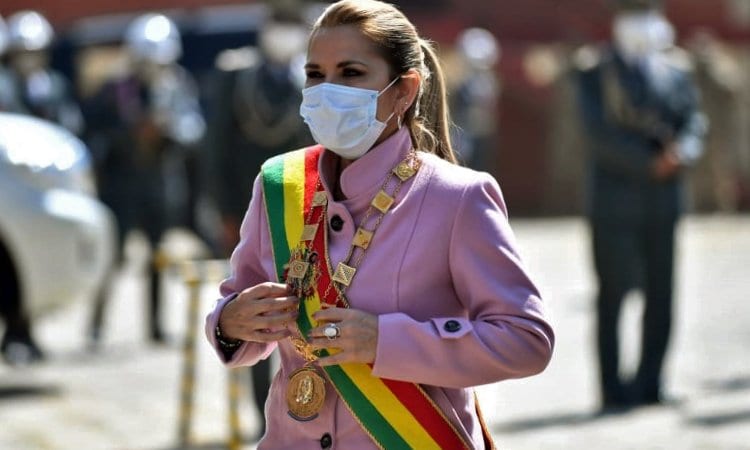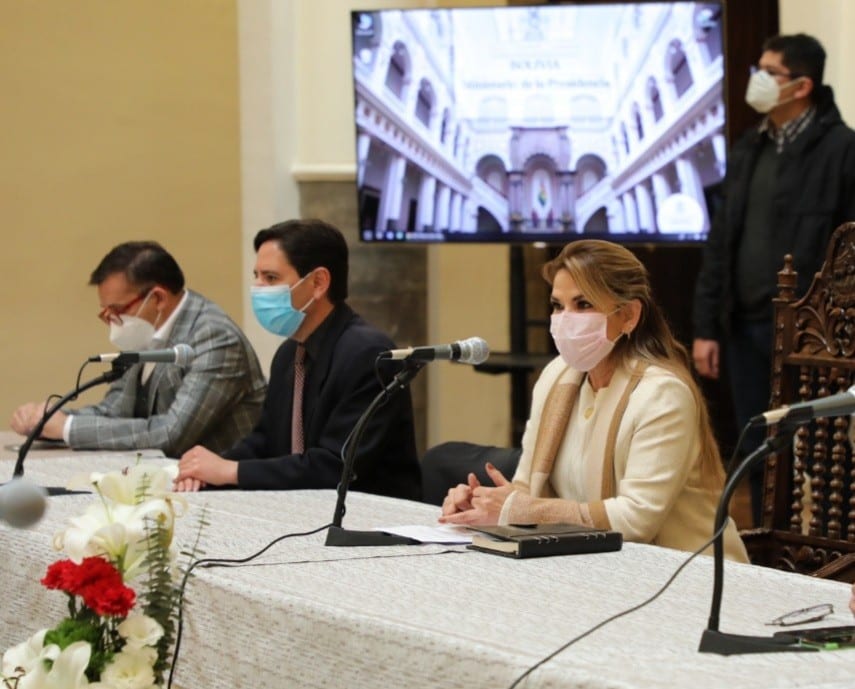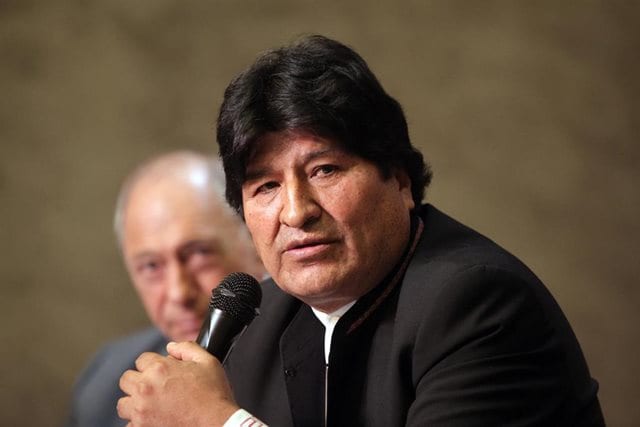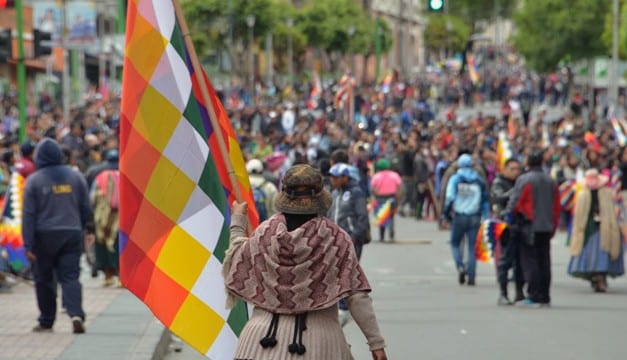On July 23, the chairman of the Supreme Electoral Tribunal of Bolivia announced that the timing of the General Elections in the country was again shifted due to the outbreak of the COVID-19 virus in the region – now to October 18. Initially, the first round of voting was to take place on September 6. After the announcement of a new date for the electoral process in Bolivia, new protest marches erupted. How does the Latin American country intend to get out of the political crisis amid a dangerous pandemic?
After the announcement of the news about the next postponement of the General Elections in Bolivia, social movements from July 28 launched protest marches in several regions of the country against the change in the electoral “calendar”. The transitional government of Jeanine Áñez (Spanish – Jeanine Áñez Chávez), regards their actions as an attempt by representatives of the party “Movement to Socialism” (Spanish – Movimiento al Socialismo, MAS) and supporters of the former President Evo Morales (Spanish – Juan Evo Morales Ayma) to organize riots and conduct political propaganda amid the health crisis in Bolivia as a result of an increase in the sharp number of people infected with the COVID-19 virus.

Against the backdrop of the raging pandemic in the region, Bolivia is mired in a deep socio-economic crisis. Poverty is increasingly affecting large segments of the population who are struggling to survive as a result of business closures and job losses, in addition to the high number of coronavirus infected. According to the official data of the Ministry of Health of Bolivia, as of August 11: 93.328 cases of COVID-19 virus infection were registered in the country, of which 3,761 were fatal.
Returning to the poverty level in Bolivia, it is worth referring to the study of the Latin American Strategic Center for Geopolitics (Spanish – Centro Estratégico Latinoamericano de Geopolítica, CELAG), conducted in late June – early July this year. According to the indicators of this analysis, extreme poverty in Bolivia will reach 16.8% this year, and the country’s gross domestic product is expected to contract by 5.2% in 2020 and will be characterized by a sharp increase in unemployment, which will cause a significant deterioration in poverty and social inequality. In addition, according to a public opinion poll conducted as part of this study, only 8% of Bolivia’s population does not feel affected by the pandemic in terms of income, two-thirds of Bolivians strongly disagree with the socio-economic policies pursued by the government of Áñez, which, according to respondents, it has already led to the massive impoverishment of the country.

Following the decision on July 23 by Bolivia’s Supreme Electoral Tribunal to postpone the holding of the General Elections for the third time, on August 9, the UN-mediated dialogue between the transitional government and the opposition to set a new voting date failed again. It should be noted that the Bolivian electoral body unilaterally carried out the postponement of the electoral process, without voting in the country’s parliament.
The transitional government considers the pandemic an obstacle to voting, however, it is worth noting that in countries such as the Dominican Republic, France and Spain, presidential and municipal elections were held despite the outbreak of the coronavirus, this opinion is put forward through its report by the Foundation for Journalism with the support of the foundation of Konrad Adenauer (Spanish – Fundación Konrad Adenauer, KAS). According to a study realized by this organization, during a pandemic, elections can be held in accordance with a special sanitary protocol. In turn, the Organization of American States (OAS) also has all the necessary measures to conduct the electoral process in a difficult situation as a result of the spread of the coronavirus.

Since July 28, various social movements began to carry out strikes, blockades of roads between regions of the country, preventing the supply of not only food products, but also the transportation of oxygen and medicines in the context of the sanitary crisis that Bolivia is undergoing. To date, such protests by opponents of the government of Áñez continue and gain momentum, and uncertainty about what may happen in the country in the next few hours and days alarms a number of international experts.
According to political scientist and researcher at the University of the German Armed Forces in Hamburg, Anna Soliz de Stange, the pandemic crisis has helped to reveal the lingering structural problems in Bolivia. This is a very serious and defining moment for the country, in which, if the parties fail to sit down to the negotiating table, there will be much more serious clashes between civilians and irreparable economic losses. Fernando Mayorga Ugarte, sociologist and general director of the Centre for Higher University Studies (Spanish – Centro de Estudios Superiores Universitarios, CESU) in Cochabamba, agrees with her. According to him, this watch is of decisive importance in Bolivia. If confrontations continue, we may witness a conflict with unpredictable consequences. The only way to resolve this political crisis is through a general election.

To date, the country has already recorded about 100 points of road blockades that prevent the flow of food, medicine and oxygen to the regions of the country. The transitional government believes that supporters of the party “Movement to Socialism” are behind such large-scale protests, the former President of the country runs this propaganda campaign from his political asylum in Argentina. However, Evo Morales himself denies such accusations and claims that the protest marches were organized by Bolivian social movements and public associations. In addition, on 12 August, Morales appealed to his supporters, including the organization “Central Obrera de Bolivia” (COB), the Bolivian Workers’ Center, and asked for a new voting date set for 18 October.
Today, a number of international observers agree that now in the Latin American country it is urgently necessary to guarantee democracy, holding transparent elections in which all existing political forces will take part. The acute crisis that Bolivia faced in October-November of last year has not been resolved in recent months. In addition, the pandemic was able to “reveal” other social conflicts, as well as to give a complex situation a structural nature. Whether the parties will be able to reach a consensus and avoid an increase in the degree of mass unrest, it will be shown in the coming days.


